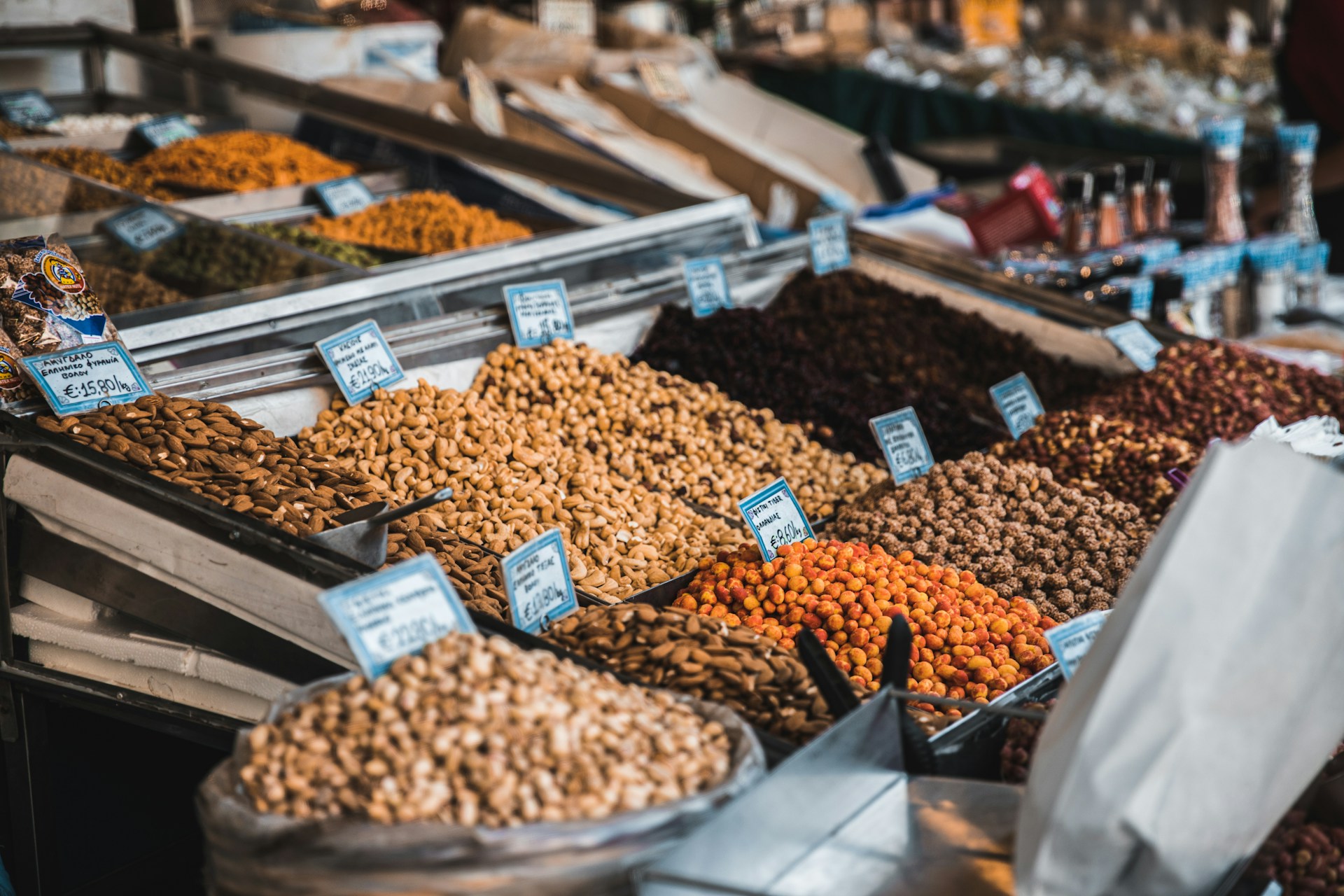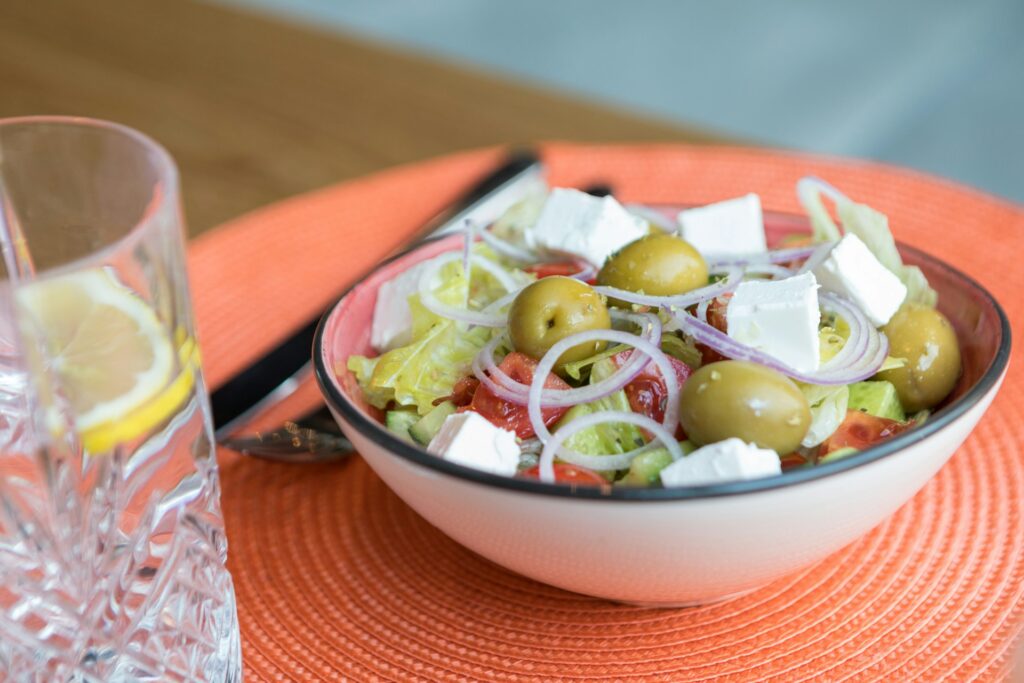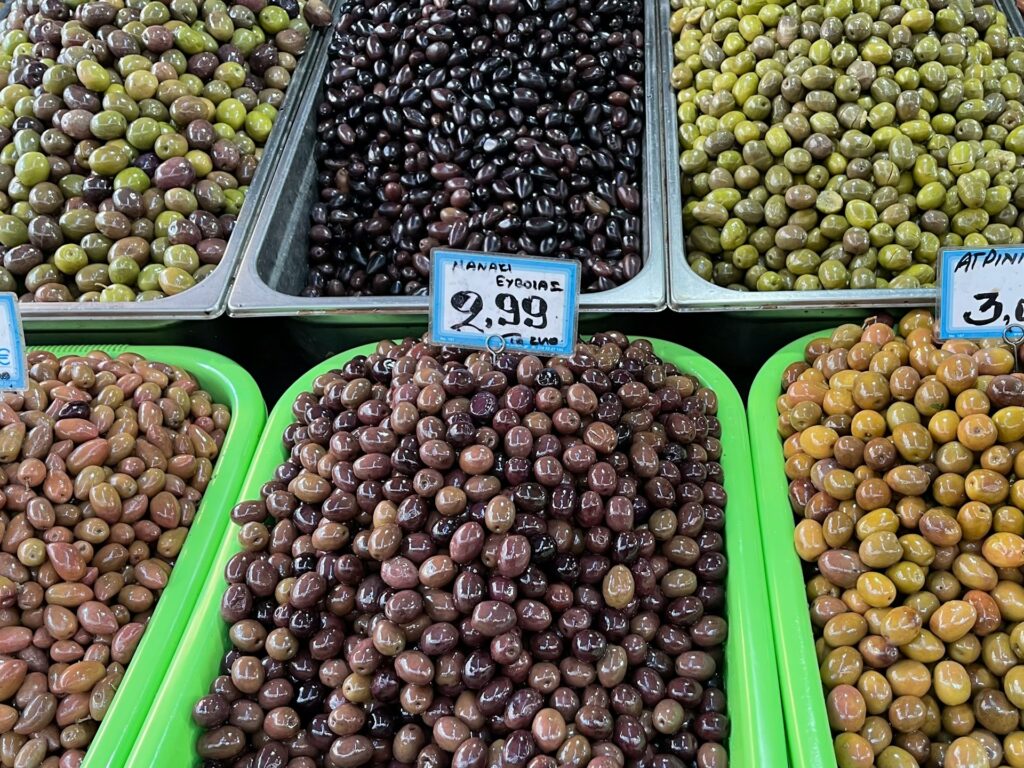
Filed in Featured Destinations — December 23, 2024
Explore Greek Cuisine: 9 Types of Greek Food You Must Try
Known for having one of the healthiest culinary cultures in the world, Greece has served as a model for the Mediterranean diet.
A hot, dry climate sets the tone for the Greek menu, which relies heavily on fresh food. Fishermen provide an array of seafood from the Mediterranean, and farmers cultivate lemons, eggplant, artichokes, and other fresh fruits and vegetables. Of course, you can’t talk about Greek cuisine without mentioning olive oil, which is essential to almost every meal.
Ancient Greece was known for having one of the highest life expectancy rates in the world, which could be traced back to the incredibly fresh and healthy diet. When you visit Greece today, you can expect fresh ingredients, family recipes, and warm hospitality.
Olive Oil
Olive oil has been a staple in the Greek diet for centuries. Greece is the 3rd largest olive oil producer in the world and the biggest exporter of extra virgin olive oil. It is estimated that Greeks individually consume around 26 liters of olive oil a year. Luckily, olive oil is considered a healthy fat, so it is packed with health benefits, including its ability to help reduce blood pressure and loads of antioxidants. Be sure to pick up a bottle or two for yourself and your friends back home!
Greek Meze
Greek meze is an assortment of bite-sized foods served on small plates or a platter. Meze may include anything from roasted red peppers stuffed with rice to charred octopus, depending on where you order it. Meze may be served hot or cold and make perfect appetizers. Or order an assortment and make it a meal!
Greek Salad
After a day of walking around Athens and exploring the ruins, it’s nice to sit back with a cold drink and enjoy a refreshing Greek Salad. This simple yet delicious salad has grown from a classic regional favorite into an international go-to. A classic Greek salad is typically made of fresh sliced tomatoes, cucumbers, onions, olives, drizzled with olive oil and sprinkled with salt and pepper. The simplicity of the recipe and freshness of the ingredients are the keys to making the perfect Greek salad!
Seafood
Sit by the sea in a picturesque Greek restaurant, enjoy a glass of wine or ouzo, and let locals guide you through an extensive list of traditional Greek seafood dishes, all made of good quality fresh ingredients, topped with herbs, and drizzled with infamous Greek olive oil. Thanks to the country’s proximity to the sea, seafood is a staple of the local diet. Enjoy some classic dishes like mussels and fried calamari or venture out and try local favorites like octopus or cuttlefish.
But be aware that fish is sold in restaurants by the kilo. Prices range from 70 to 100 Euro per kilo. That is a lot of fish, even for two people. If you brought your appetite or some friends, order fish and the chef will grill it for you and serve it whole. Smaller fish like anchovies, sardines, or octopus are sold by the plate or portion and are much less expensive.
Souvlaki
Souvlaki refers to Greek fast food, but don’t let that turn you away. Greek fast-food is typically much healthier and tastier than fast-food in the U.S. You can order gyros, meat and vegetable skewers, grilled turkey patties, seasoned rice, and much more.
Magirefta and Moussaka
Magirefta refers to any slow-cooked, homemade meal made in Greece. Traditionally any Magirefta meal is cooked in a katsarola (deep pot) or tapsi (deep baking tray).
As one of Greece’s most treasured authentic dishes, you must try moussaka. This dish includes slow-cooked meats, eggplant, and cheeses, which are served as a casserole. Everyone’s grandmother has the best recipe!
Ouzo
There is an old Greek saying, “ouzo makes the spirit,” and this is especially true in Greece. Ouzo is, by far, Greece’s most famous alcoholic beverage. It’s a sweet, strong alcoholic drink similar to a liqueur, which is made from the by-products of grapes after they’ve been used for wine. Drinking Ouzo in Greece is a cultural ritual that has its own particular time and place, usually in the late afternoon or early evening, and always served cold with a small plate of food. In Greece, drinking Ouzo is just as much a part of the culture and the lifestyle as is Greek mythology and olive oil. Or try other traditional Greek spirits like mastic and raki.
Wine, Nectar of the Gods
As one of the oldest wine-producing regions in the world, you absolutely cannot pass on the opportunity to indulge in Greek wine. In ancient Greece, wine was considered the nectar of Gods and was used as an offering during celebrations. Dionysus, the Greek god in charge of harvesting grapes and producing wine, would be pleased with the quality of Greek wine produced today.
Greece has over 200 indigenous grape varietals not found elsewhere, including Assyrtiko, Agiorgitiko, and Savatino. Today, Greek winemakers use organic and bio-dynamic techniques to make increasingly better wines which are winning major international awards.
Visit a wine bar or an international market to find some of the best wines. Many varietals are produced in quantities too small to export. Both red and white wines pair well with Greek food.
Greek Desserts
You cannot leave Greece, or finish a meal, without trying some traditional desserts, especially zaharoplasteio (pastries). Some of the sweets you will likely be served include kataifi, milopita, galaktoboureko, baklava and loukoumades. Greek pastries and sweets embody the smell and flavor of the authentic Greek experience. As is typical of Greek hospitality, a small sweet is often offered complimentary by the hosts.
Exploring a new country goes beyond walking the streets, so give the local cuisine a try!
I’d love to plan your vacation to Greece. Schedule a complimentary travel consultation here.
Let’s get started planning your luxury vacation. Reserve your complimentary consultation call with me to begin!



Image credit: Anastase Maragos, ALEXANDRA TORRO, Farhad Ibrahimzade, John Cameron